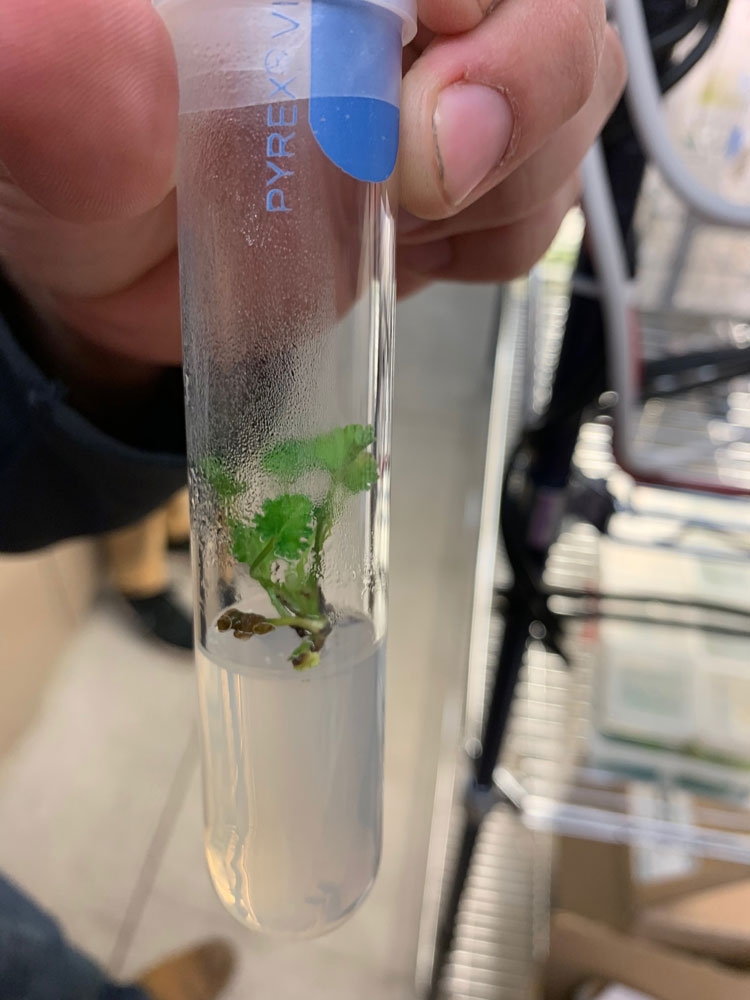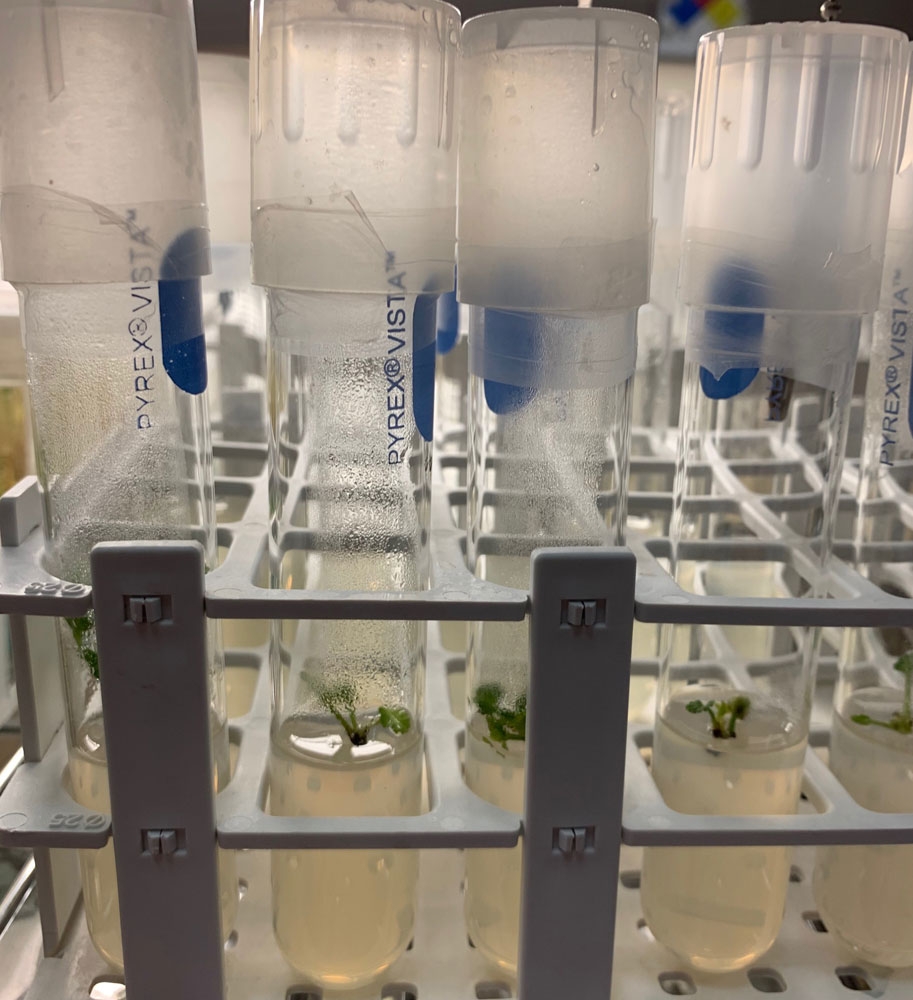Preserving Plants Using Our Tissue Culture Lab
Plants get viruses just like humans, but how do we take care of a sick plant? It is difficult, but necessary, for some special plants like Pelargonium sidoides (South African geranium). We only have two in our entire collection!
These individuals were grown from seeds obtained from Katse Botanical Gardens in Lesotho, South Africa. Sadly, they show symptoms of viral infection. We want to preserve these plants not just in our collections, but also potentially in the wild. To native healers in Lesotho, Pelargonium sidoides is an important medicinal plant, and demand for it threatens the plant with over-harvesting without conservation efforts. Some plants are available on the open market, but they are most likely hybrids. That hybridization isn't negative in terms of commercialization, but we still want to use native selections for conservation
One way to preserve the plants is to use tissue culture techniques to eradicate the virus from the plants. Using this technique, plants are grown under sterile conditions in culture tubes or glass jars on an agar gel. The gel contains everything the plant needs, including nutrient salts, vitamins, hormones and sugar (for energy). Denver Botanic Gardens has a lab that is dedicated to the tissue culture production of difficult to propagate plants. The lab researches and produces for Plant Select® and for Gardens horticulturists. The lab also researches, propagates and distributes rare and endangered plant material for restoration efforts or other botanic gardens for conservation.
The method to eradicate the virus in these plants starts with taking shoot tips from the plant. I was able to grow out five plant clones. Under sterile conditions, I harvested the extreme tip of a bud, around 0.1 millimeter, consisting of maybe 10-15 cells that are young and still developing. These cells don't yet have the virus and being clones of the mother plant, this means I can obtain virus-free plants. This is due to every cell in a plant having the capacity to dedifferentiate into a new type of cell given the right conditions, called totipotency (somewhat akin to stem cells). These clean plants can then be mass produced and conserved in our collections, shared with other botanic gardens and potentially re-introduced into the wild.
Pelargonium sidoides Gallery



Comments
Plant tissue culture / separation of embryonic cells methods
I am interested in working in tissue culture lab and I have some experience in tissue culture and plant pathology.
Tissue culture lab
We don't currently have any job openings in the tissue culture lab. Applications are only accepted for open positions. Here are the current job openings: https://www.botanicgardens.org/join-give/career-opportunities
Lab Tour
I’ve always been interested in tissue culture and was wondering if you gave tours of the lab?
Lab tour
Derek,
I am sorry, but we do not give tours of the Tissue Culture Lab to the general public. We try to maintain a very clean laboratory, and the only tours we will allow are visiting scientists, representatives of similar organizations, or occasionally high school/college level classes.
Intro / Support
My name is Neil Poirier, and I lead a plant tissue culture and micropropagation program focused on clean starting material, repeatable production, and long-term genetic preservation.
I’m reaching out to see if there’s any interest in collaborating or supporting each other on projects this year. Depending on fit and capacity, I’d be open to:
Overflow support during high-volume periods (subculture, multiplication, rooting, acclimation coordination)
Clean stock and stabilization workflows
Genetic preservation and long-term storage strategies (including cold storage concepts)
Media formulation and troubleshooting (salts, gelling systems, contamination patterns, performance issues)
Joint R&D on protocols for specific species/cultivars
Referrals and cross-support when one of us is a better match for a project
If it makes sense, I’d love to set up a quick call to compare capabilities and see where collaboration could be mutually beneficial.
Best regards,
Neil Poirier
Hi Neil, Thanks for reaching…
Hi Neil,
Thanks for reaching out. You can contact our HR Department for any available opportunities that might be a fit for your interests.
Add new comment